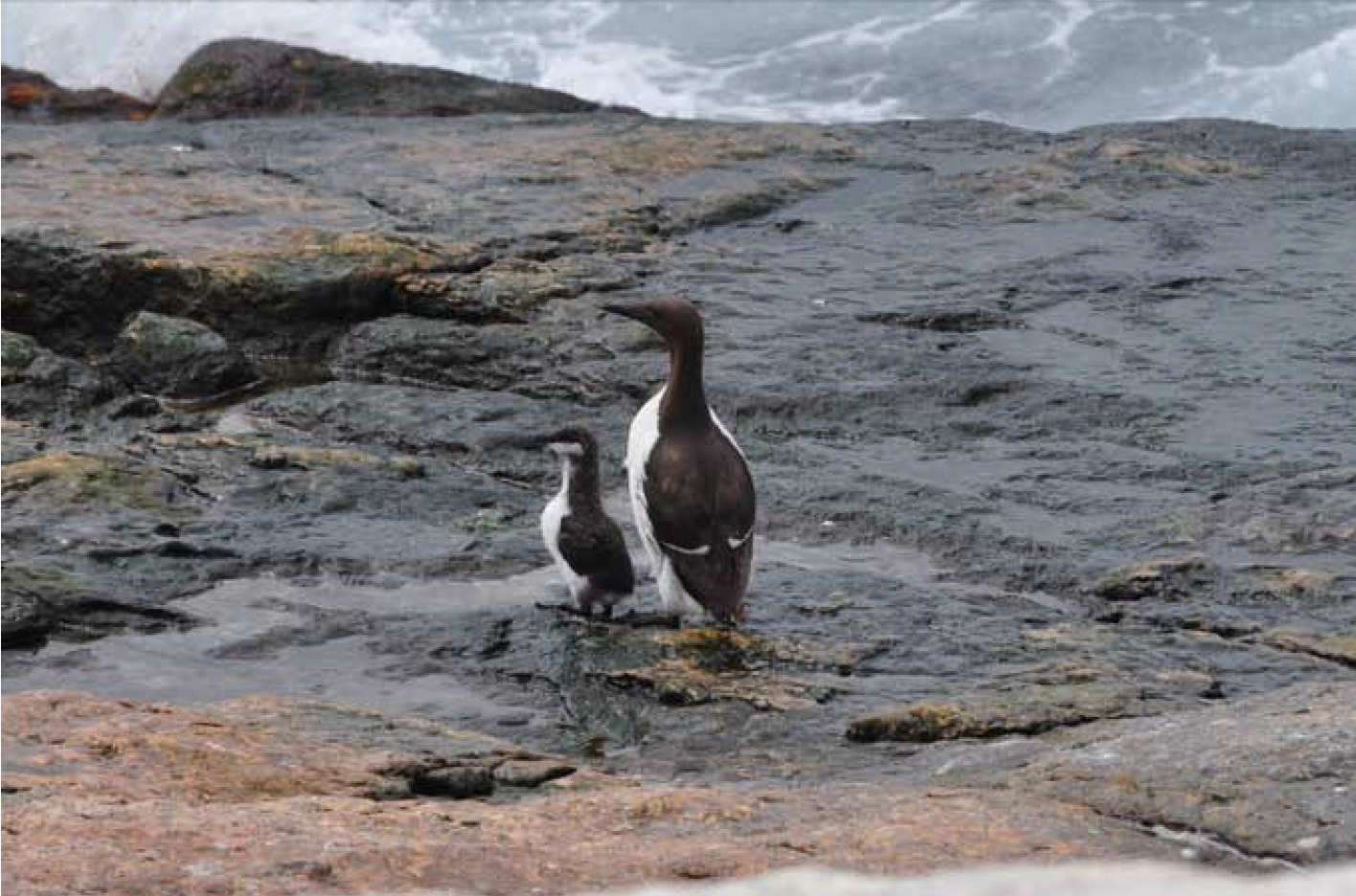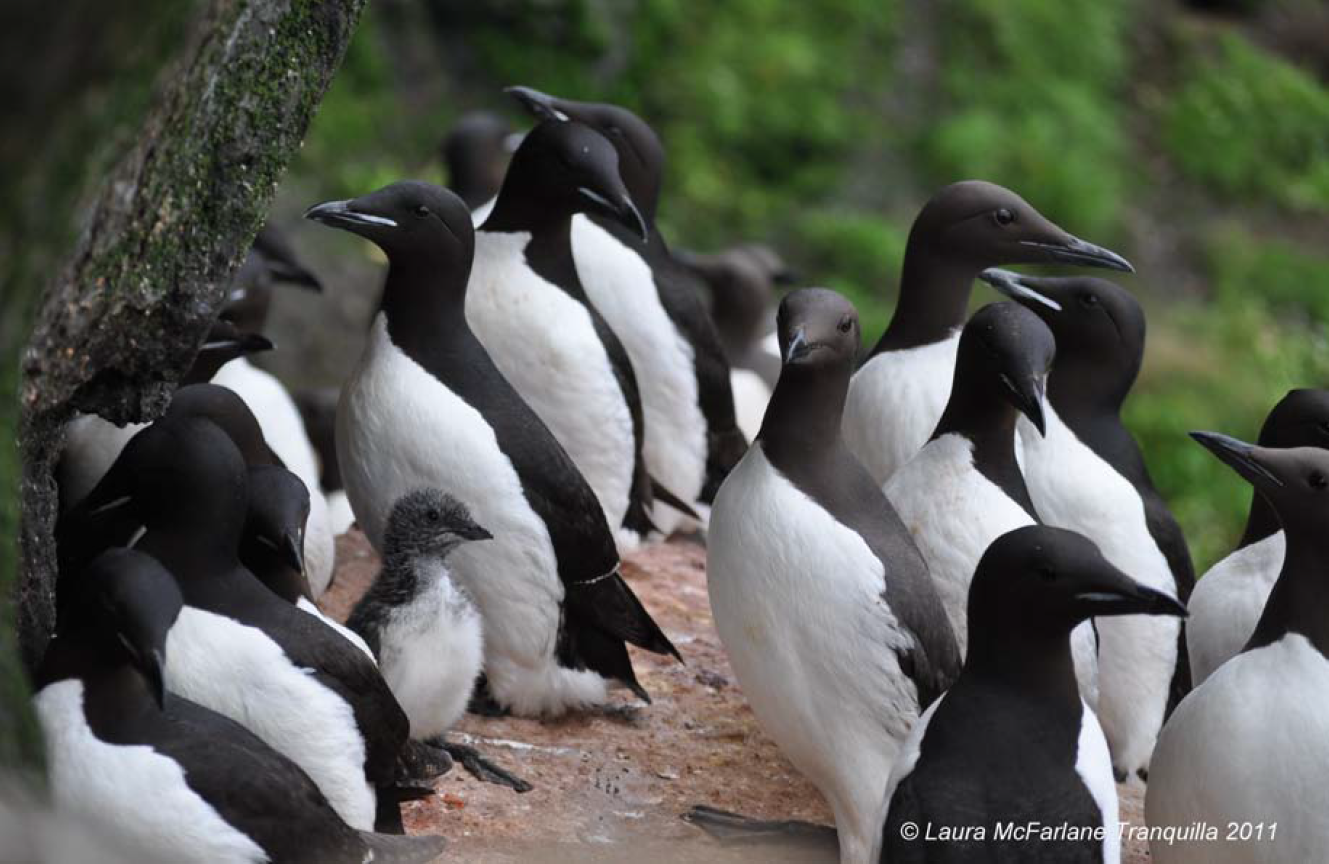What is the Newfoundland and Labrador Murre Conservation Fund?
Each year a portion of the revenue from the sale of the Canadian Wildlife Habitat Conservation Stamps in Newfoundland and Labrador is put towards murre conservation and management. This financial support helps to ensure a sustainable murre population by improving our understanding of how best to manage murres. The intent is to maintain a healthy murre population so that hunting opportunities are available for future generations.
How the fund came to be
Residents of Newfoundland and Labrador have harvested murres (turrs) for food for generations. During the 1970s and the 1980s it became apparent that the murre harvest was unsustainable and regulation commenced in the early 1990s under special authorities of the Migratory Bird Convention Act. Starting in 1999, murre hunters were required to purchase a Migratory Game Bird Hunting Permit. More effective regulation of the hunt was also achieved through bag limits and seasonal restrictions to ensure the long term sustainability of murre populations. A portion of the money from the hunting permit (from the Canadian Wildlife Habitat Conservation Stamp) sold in Newfoundland and Labrador is directed to murre conservation activities. These funds are managed by Wildlife Habitat Canada and Bird Studies Canada (Newfoundland), in consultation with the Canadian Wildlife Service and the Wildlife Division of the Province of Newfoundland and Labrador.
What the fund supports
By providing funds to projects that support the conservation, management and sustainable harvest of murre populations, the Newfoundland and Labrador Murre Conservation Fund encourages the conservation of murres through research and education and aims to further this support. Over the years, this fund has supported research on several aspects of murre biology and conservation, including breeding ecology and productivity; assessment of diet and foraging ecology; the role of annual survival, harvest, oiling and other mortality factors; as well as studies on migration, distribution, and overwintering areas. Hunters can take pride in being part of the efforts to support research on murres in Newfoundland and Labrador.
For more information on the Newfoundland and Labrador Murre Conservation Fund and what the Stamp on your permit supports, visit Bird Studies Canada www.birdscanada.org and Wildlife Habitat Canada www.whc.org

